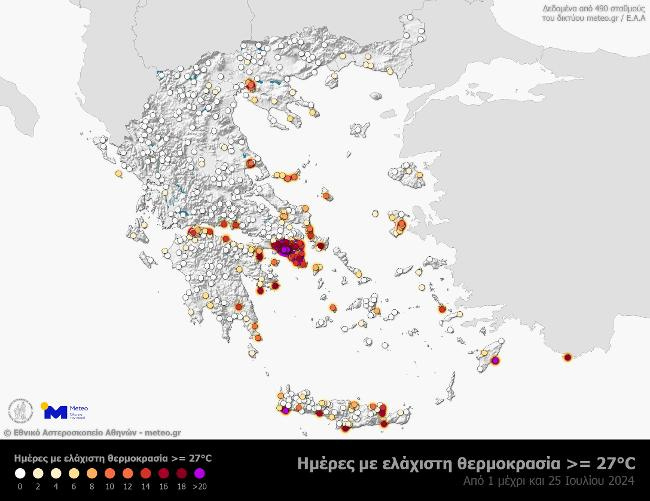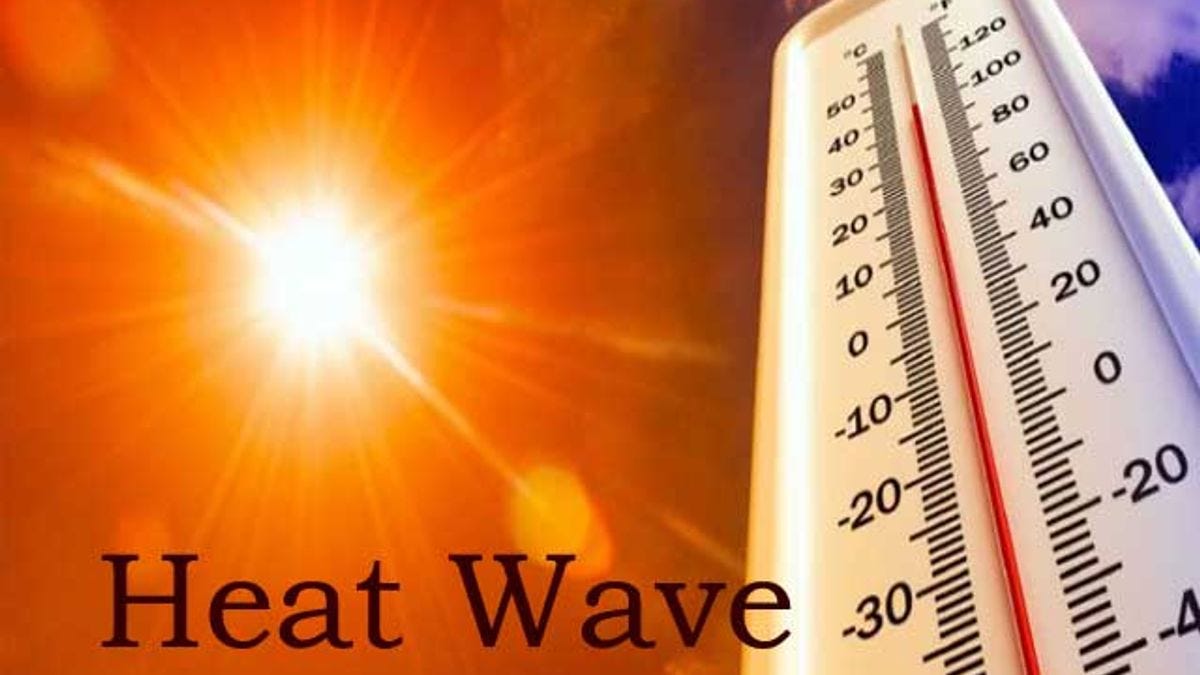"But the Island I love, and I wish I were not seeing it in one of the seasons of hell."
Unrelenting Heat: Greece Endures One of the Hottest Summers on Record
Greece, along with much of southern Europe, has been experiencing one of the hottest summers in recent years.
The June 2024 heatwave in the Eastern Mediterranean was a somewhat uncommon event. At its peak, between 11 and 14 June 2024, the temperatures in Greece reached 44.5ºC, leading to multiple fatalities, including tourists who succumbed to heat-related illnesses while hiking in remote areas.

According to ClimaMeter, this extreme heat can be attributed largely to “human-driven climate change, with natural climate variability playing a modest role.”
July brought no relief. Unlike June, the main feature of July's heatwave in Greece was not the high temperatures but its duration. For 16 consecutive days, the maximum daily temperature was above 37°C. High temperatures were recorded even during the night in several parts of the country. The situation was much worse in urban centres, with temperatures failing to drop even below 27°C for many 24 hours.

Research has shown that heatwaves have increased in intensity, frequency, and duration, with these trends expected to worsen as global warming accelerates. The inequality of heatwave impacts has also been assessed; they disproportionally affect developing nations due to their limited adaptive capacity and cultural constraints. These impacts are expected to intensify with enhanced global warming, as accelerated heatwave trends will likely lead to more severe and potentially irreversible consequences in various sectors.
Talking with my Greek friends about the recent heatwave, I couldn't help but think of Dylan Thomas. In the summer of 1947, Thomas experienced a similarly intense heatwave on the island of Elba. It was so overwhelming that it dominated his thoughts and writing. In one of his letters, he describes the gruelling heat as follows:
What was I saying? Nothing is clear. My brains are hanging out like the intestines of a rabbit, or hanging down my back like hair. My tongue, for all the ice-cold God I drink, is hot as a camel-saddle sandily mounted by baked Bedouins. My eyes like over-ripe tomatoes strain at the sweating glass of a Saharan hothouse. I am hot. I am too hot. I wear nothing, in this tiny hotel-room, but the limp two rivers of my Robins’-made pyjama trousers. Oh for the cyclonic Siberian frigidity of a Turkish bath! In the pulverescence of the year came Christ the Niger.
Christ, I’m hot!
But the Island I love, and I wish I were not seeing it in one of the seasons of hell.
To put this into context, after researching some old temperature records the peak temperature on the island of Elba during the summer of 1947 was 37.3°C (99.1°F). This temperature was recorded on August 12, 1947, during an intense heatwave that affected much of Europe. It was the peak of a long drought that impacted central Europe from around 1945 to the early 1950s.







It is always a good idea to follow common sense : Do not go off on a hike alone at the hottest time of the day. Do not venture alone in remote, inaccessible areas one has never been before. Have adequate supply of water. Have a fully charged mobile phone. These are basic precautions.
Good to know also that there were heatwaves in 1947. Kind of reassuring!